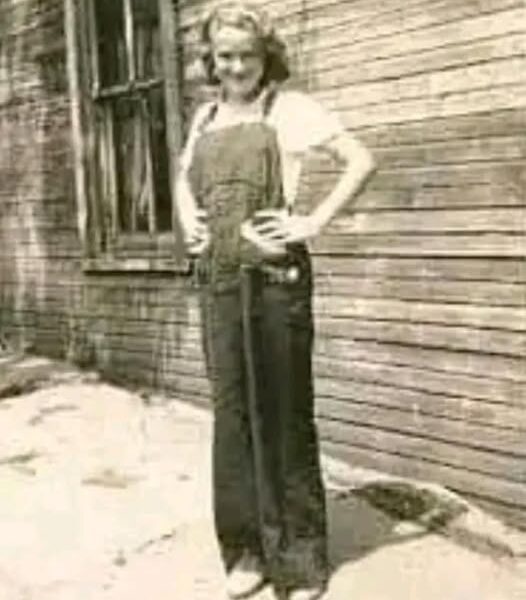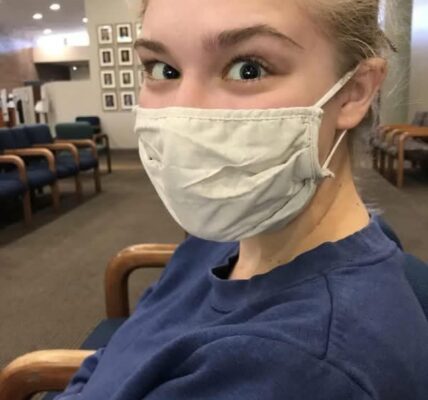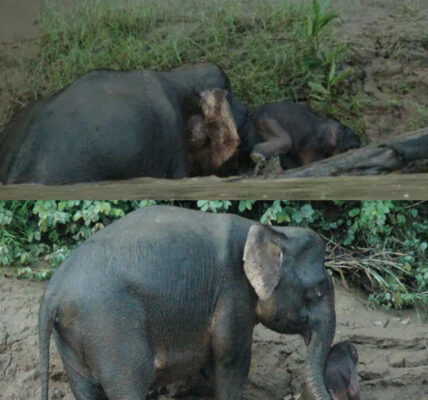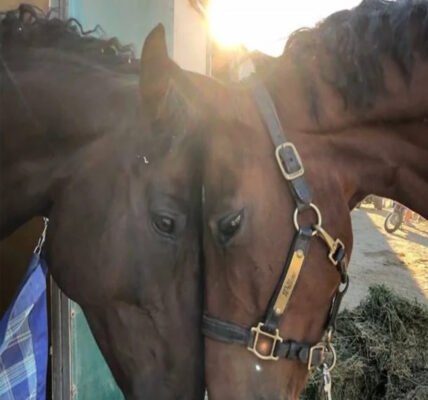
I’ll never forget Easter of 1946. I was fourteen, my little sister Ocy was twelve, and my older sister Darlene was sixteen. We lived at home with our mother, and life was not easy. Our father had died five years earlier, leaving Mom to raise seven school-aged children on her own, with almost no money to make ends meet. By 1946, some of my older sisters were married, and my brothers had moved out, leaving just the four of us at home.
A month before Easter, our church pastor announced that a special offering would be taken to help a poor family. He encouraged everyone to save and give sacrificially. When we got home, we sat down and tried to figure out what we could do. My sisters and I decided that we could buy 50 pounds of potatoes and live on them for the month, saving $20 of our grocery money for the offering. We brainstormed other ways to save: turning off the electric lights as much as possible, not listening to the radio, and Darlene took on house and yard cleaning jobs while Ocy and I babysat whenever we could.
Even the tiniest projects counted. For fifteen cents, we could buy enough cotton loops to make three potholders, which we sold for a dollar. Slowly, every day, we watched the money grow. Each night, sitting in the dark, we dreamed about the poor family who would receive the offering. In our minds, with about eighty people in the church, we were sure the offering would be much more than just our small contribution.
The day before Easter, Ocy and I walked to the grocery store and had the manager exchange our coins for crisp bills: three $20s and one $10. We ran home in excitement to show Mom and Darlene. We had never seen so much money in our lives. That night, we could hardly sleep. We didn’t have new clothes for Easter, and the rain poured down on Sunday morning, soaking us as we walked over a mile to church without an umbrella. But none of that mattered. We had $70 for the sacrificial offering, and we felt wealthier than anyone we knew.
Darlene stuffed cardboard in her shoes to cover the holes, which quickly fell apart and left her feet wet. We sat in the second row, proud and excited, while whispers among the teenagers about our “old dresses” barely registered. We were rich. Rich in generosity, rich in joy, rich in purpose.
When the offering was taken, Mom placed the $10 bill in the plate, and each of us girls added a $20. We walked home singing, proud of what we had given. At lunch, Mom surprised us with a dozen eggs, which we boiled to have with our fried potatoes—an Easter feast in our humble home.
Late that afternoon, the minister drove up. Mom spoke with him at the door and returned with an envelope in hand. Without a word, she opened it. Inside were three $20 bills, one $10 bill, and seventeen $1 bills—the money for the poor family. Suddenly, we felt what it truly meant to be poor. We had imagined ourselves as rich, but in the eyes of the world, we were the ones who needed help. For the first time, the reality of our situation weighed heavily on me. I felt ashamed of my worn dress and shoes. I wondered if everyone at school already knew we were poor. I even considered quitting school, thinking we had nothing to offer beyond what the law required.
The week passed in quiet reflection. We didn’t talk much, and the joy we had felt seemed distant. On Saturday, Mom asked us what we wanted to do with the money. We didn’t know how to spend it; we had never truly known what it meant to be poor.
Sunday arrived, and we reluctantly went to church. A missionary speaker spoke about churches in Africa, buildings made of sun-dried bricks that needed money for roofs. He explained that $100 could build a roof, and the minister encouraged the congregation to sacrifice generously. We smiled at each other for the first time all week. Mom passed the envelope of money down to Darlene, then to me, and finally to Ocy, who placed it in the offering plate. When counted, the offering totaled just over $100. The missionary, surprised and thrilled, said, “You must have some rich people in this church.”
We looked at each other in astonishment. Our $87 had made up the majority of that offering. In that moment, we realized that wealth is not measured by what you have, but by what you give. We were the rich family in the church. We had been poor in material things, but rich in love, sacrifice, and faith.
From that day on, I have never felt poor again. I have always remembered how rich I truly am, for I have Jesus and the lessons of generosity and love instilled in me that Easter.




